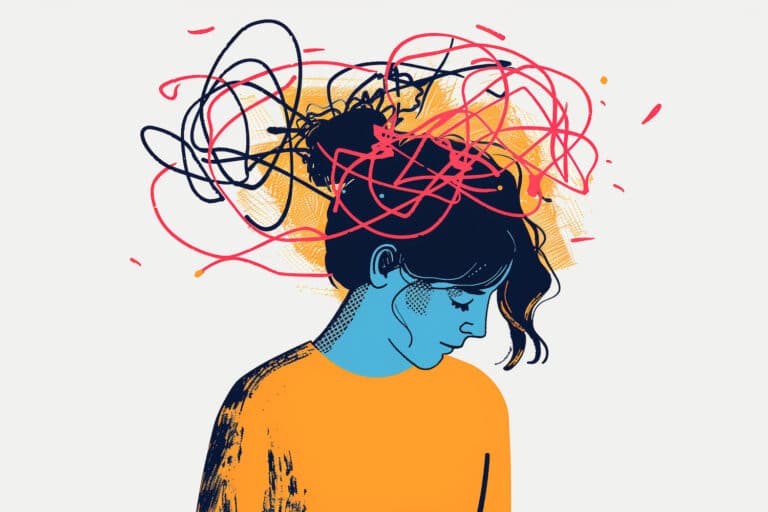By: Magnolia Creek Staff
“I just want to go to sleep and never wake up. It’s too painful to breathe.”
I remember the first time a client of mine said that to me. It was 16 hours after her son died, and I had walked into her room to check on her. Employed at a shelter, I was a new social worker with a huge heart, great intentions, and limited training. I did not have a master’s degree yet but was experienced in a variety of crisis-focused environments. I had friends and family members who experienced suicidal ideation over the years, but this was the first time I was in a formal caretaker role. It now was my responsibility to help, and no pressure, but if I screwed up, someone’s life was at risk.
From a social worker’s point of view, few things make your insides flip with anxiety, helplessness, and deep, heart-wrenching sadness more than someone being in so much pain they would rather not be breathing at all. Despite working with thousands of people over a decade (many whom have experienced suicidal ideation at some point in their journeys), there is a deep heaviness I feel in my stomach as it twists a little tighter every time someone expresses their amount of pain.
At the same time, and more importantly, in those moments when someone is showing that level of pain, it feels like one of the greatest privileges to be allowed in to see the pain, walk with the person, and help them out of a very lonely, dark, scary place. As hard as it is to watch another human being in immense amounts of pain, more than anything in these moments, I want them to feel seen, heard, loved, supported, and worthy of care. I want them to know that not only can I handle what they share, but I want to support them through it. It won’t be too scary, too heavy, or too much because no one deserves to walk alone. We all have our struggles, and I believe we are here to support each other I have walked this path many times before with countless people, and I have seen the hope on the other side. The person in front of me is worthy of support.
So, we take everything moment-by-moment and day-by-day.
We start by identifying suicidal thoughts as having a valid purpose and reason. Suicidal thoughts are nothing to be ashamed of, in fact, suicidal ideation is our brain’s way of telling us, “I’m in so much pain, and I don’t know how to make it go away. Death seems like a way to find relief or at least make everything stop.” Our brains are wired to seek comfort and contentment, so in some ways, it makes sense that some see suicide a choice. Our brain tries to cope with the overwhelming emotions we experience and tell us to reach out for support.
Reaching out for support can be scary especially for those who had reached out before and experienced less than supportive responses. So how do we know who may be safe to contact for support? Here are some guidelines to help you make this decision when looking for professional support:
1) Does this person have experience working with clients with suicidal ideation? (I highly recommend someone who specializes in this area if available)
2) What is their policy on hospitalization? Is it anytime someone expresses suicidal ideation, or has a plan? Is it when someone has the intent to kill themselves? Look for someone who is willing to talk with you about this specifically. If someone feels hospitalization is necessary as soon as someone has suicidal thoughts (even if they would not act on those thoughts and don’t have the means to do so), or if they are unwilling to talk with you about this specifically, they probably won’t be the best fit for you. Premature hospitalization can sometimes cause more harm than good. I often reassure my clients that the only time we will need to reach out for additional support is if I am convinced that when they leave my office, they may not make it back to see me. And if we get to that point, we will talk about it together.
3) Does the therapist set up a safety plan with you? A safety plan helps you identify warning signs; practical skills you can use at the moment to help you with coping and lowering emotional distress; people in your support system; and reminders to help you push through when you are overwhelmed. For example, reminding yourself that the intensity of the pain you are experiencing is temporary. It has come and gone before and it will again this time if you can hold on.
4) Does the therapist have you sign a contract saying that you will not kill yourself? What we know, based on research, is that these contracts do not foster an open, supportive relationship and are not helpful and prevent clients from openly talking with their practitioners out of fear of hospitalization.
5) If your brain chemistry is severely imbalanced and you are considering suicide, what is the therapist’s process to ensure your safety? It is helpful to discuss and plan -ahead of time so that you both know the expectations, and feel that you have some input in that planning process.
As scary as it can be to reach out for support, is it worth finding someone to walk with you and find other ways to experience relief without dying?
You have been experiencing this pain for a long time, so maybe spending some time working with a therapist who specializes in suicide prevention could be worth the effort. Know that there are people who want to walk with you. There are evidence-based interventions that can assist in developing coping skills, challenging distorted thoughts that exacerbate depression, and process painful past experiences. Finding the right therapist can make a world of difference.
Check out this list for further information on supportive resources that can assist you, no matter where you live: SpeakingofSuicide.com.
It can also be helpful to connect with others who are survivors to learn their stories of recovery and support you. Most of the survivors thought they were exceptions too, but there is hope (and research) that confirms that your pain does not have to last a lifetime.
I am deeply saddened that you are experiencing this amount of pain. Be assured that you are not alone, there is hope for relief without suicide.
Magnolia Creek is one of many resources available to support people who experience suicidal ideation. To talk with our team and get more information call us at 205-235-6989 or complete our contact form.




